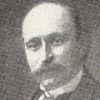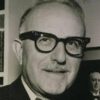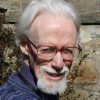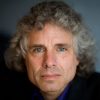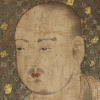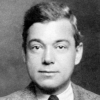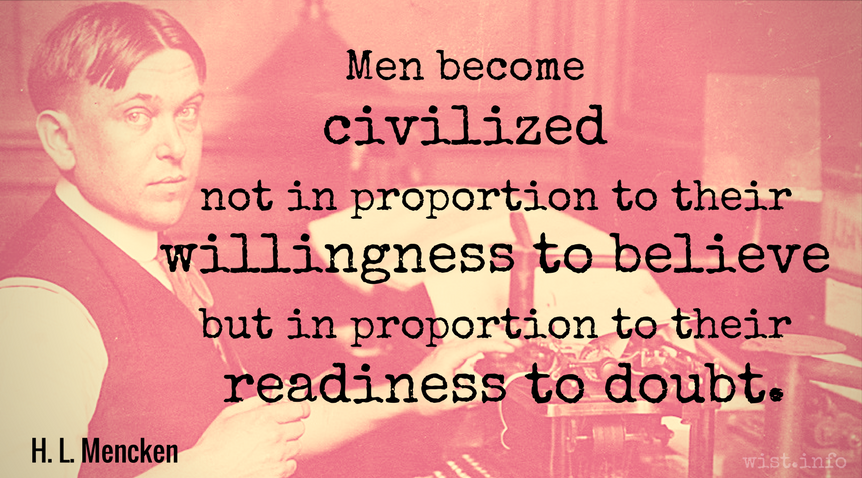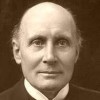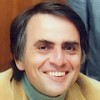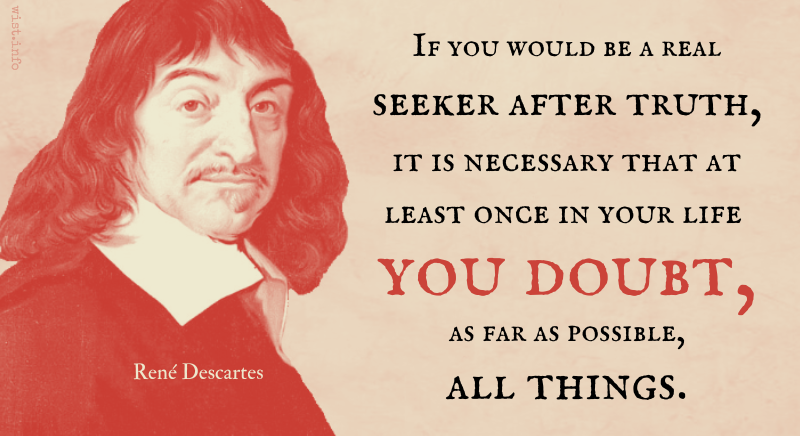I have learned yet again (this has been going on all my life) what folly it is to take anything for granted without examining it skeptically.
Joseph Jacobs (1854-1916) Australian folklorist, literary critic, historian writer
Dark Age Ahead, “Notes and Comments” (2004)
(Source)
Quotations about:
skepticism
Note not all quotations have been tagged, so Search may find additional quotes on this topic.
When one admits that nothing is certain one must, I think, also admit that some things are much more nearly certain than others. It is much more nearly certain that we are assembled here tonight than it is that this or that political party is in the right. Certainly there are degrees of certainty, and one should be very careful to emphasize that fact, because otherwise one is landed in an utter skepticism, and complete skepticism would, of course, be totally barren and completely useless.
Bertrand Russell (1872-1970) English mathematician and philosopher
“Am I an Atheist or an Agnostic?” sec. “Skepticism” (1949)
(Source)
Originally given as a speech, "Agnosticism v. Atheism," Rationalist Press Assoc. Annual Dinner, London (1949-05-20); then printed as "Agnosticism v. Atheism," The Literary Guide and Rationalist Review (1949-07); then released as an essay under this title later in 1949.
BEATRICE: I had rather hear my dog bark at a crow than a man swear he loves me.
William Shakespeare (1564-1616) English dramatist and poet
Much Ado About Nothing, Act 1, sc. 1, l. 129ff (1.1.120-130) (1598)
(Source)
I think nobody should be certain of anything. If you’re certain, you’re certainly wrong, because nothing deserves certainty, and so one ought always to hold all one’s beliefs with a certain element of doubt and one ought to be able to act vigorously in spite of the doubt.
Bertrand Russell (1872-1970) English mathematician and philosopher
Interview by Woodrow Wyatt, BBC TV (1959)
(Source)
Collected in Bertrand Russell's BBC Interviews (1959) [UK] and Bertrand Russell Speaks His Mind (1960) [US]. Reprinted (abridged) in The Humanist (1982-11/12), and in Russell Society News, #37 (1983-02).
In fact, “atheism” is a term that should not even exist. No one ever needs to identify himself as a “non-astrologer” or a “non-alchemist.” We do not have words for people who doubt that Elvis is still alive or that aliens have traversed the galaxy only to molest ranchers and their cattle. Atheism is nothing more than the noises reasonable people make in the presence of unjustified religious beliefs.
Sam Harris (b. 1967) American author, philosopher, neuroscientist
Letter to a Christian Nation (2006)
(Source)
It is assumed that the skeptic has no bias; whereas he has a very obvious bias in favor of skepticism.
Gilbert Keith Chesterton (1874-1936) English journalist and writer
“The Error of Impartiality,” All Things Considered (1908)
(Source)
If I valued fame, I should flatter received opinions, which have gathered strength by time, and will yet wear longer than any living works to the contrary. But, for the soul of me, I cannot and will not give the lie to my own thoughts and doubts, come what may. If I am fool, it is, at least, a doubting one; and I envy no one the certainty of his self-approved wisdom.
The crucial disadvantage of aggression, competitiveness, and skepticism as national characteristics is that these qualities cannot be turned off at five o’clock.
Margaret Halsey (1910-1997) American writer
The Folks at Home, “The Five O’Clock Shadow over the United States” (1952)
(Source)
The biographer does not trust his witnesses, living or dead. He may drip with the milk of human kindness, believe everything that his wife and his friends and his children tell him, enjoy his neighbors and embrace the universe — but in the workshop he must be as ruthless as a board meeting smelling out embezzlement, as suspicious as a secret agent riding the Simplon-Orient Express, as cold-eyed as a pawnbroker viewing a leaky concertina. With no respect for human dignity, he plays off his witnesses one against the other, snoops for additional information to confront them with, probes their prejudices and their pride, checks their reliability against their self-interest, thinks the worst until he is permitted to think better.
Paul Murray Kendall (1911-1973) American academic and historian
“Walking the Boundaries,” The Art of Biography (1965)
(Source)
“What is truth?” Sometimes people ask this question because they wish to do nothing. Generic cynicism makes us feel hip and alternative even as we slip along with our fellow citizens into a morass of indifference. It is your ability to discern facts that makes you an individual, and our collective trust in common knowledge that makes us a society.
Timothy Snyder (b. 1969) American historian, author
On Tyranny: Twenty Lessons from the Twentieth Century, ch. 10 (2017)
(Source)
No one gets upset about the belief that rocks fall down as opposed to up, because all sane people can see it with their own eyes. Not so for the belief that babies are born with original sin or that God exists in three persons or that Ali was the second-most divinely inspired man after Muhammad. When people organize their lives around these beliefs, and then learn of other people who seem to be doing just fine without them — or worse, who credibly rebut them — they are in danger of looking like fools. Since one cannot defend a belief based on faith by persuading skeptics it is true, the faithful are apt to react to unbelief with rage, and may try to eliminate that affront to everything that makes their lives meaningful.
Steven Pinker (b. 1954) Canadian-American cognitive psychologist, linguist, author
The Better Angels of Our Nature, ch. 4 (2011)
(Source)
You must have three essentials for the investigation of Chan [Zen]. The first is that you must have the foundation of great faith. The second is that you must have a zealous determination. The third is that you must have the feeling of great doubt. If you omit one of these it is like breaking off the leg of a tripod, which ends up becoming a useless vessel.
高峰云、叅禪須具三要 一有大信根
二有大憤志 三有大疑情 苟闕其一
如折足之鼎 終成廢器。Hyujeong (1520-1604) Korean Seon (Sŏn, Zen) Master [Sosan Taesa, Seosan Daesa, Dae Seonsa]
Mirror of Zen [Samga Gwigam; Samga Kwigom; Seonga Gwigam], ch. 14 [tr. Jorgensen (2012)]
(Source)
Alternate translations:
For the study of Seon, there are three requirements: (1) having the great root of faith; (2) having great determination, and (3) having great doubt. If you lack one of these, it is like a broken like on a tripod sacrificial vessel. In the end you will discard it.
[tr. Miller (2017)]
There are three essentials to Sŏn meditation. First of all, you must be rooted in Great Faith and Great Confidence. Secondly, one must have Great Anger -- a strong, inwardly-directed, ardent determination to practice. Thirdly, one must have Great Doubt. If one of these is missing, it is like a tripod vessel with one leg cut off -- in the end, it will be of no use.
[Source]
It is well known that Ganhwaseon practitioners must have three things of essential importance: The first is a Foundation of Great Faith (大信根) for the practice which is possible; the second is Great Zealous Determination (大憤志) of practice to attain enlightenment; the third is a Great Feeling of Doubt (大疑情) on the Hwadu. If one of these is lacking, then it is like a tripod pot with a broken foot and is useless.
[Source]
The path of sound credence is through the thick forest of skepticism.
George Jean Nathan (1892-1958) American editor and critic
Materia Critica, “Critic and Criticism,” sec. 4 (1924)
(Source)
This is how humans are: We question all our beliefs, except for the ones we really believe, and those we never think to question.
I probably differ from most people, who believe in Belief, and are only sorry they cannot swallow even more than they do. My law-givers are Erasmus and Montaigne, not Moses and St. Paul.
E. M. Forster (1879-1970) English novelist, essayist, critic, librettist [Edward Morgan Forster]
“What I Believe,” The Nation (16 Jul 1938)
(Source)
Men become civilized not in proportion to their willingness to believe but in proportion to their readiness to doubt.
H. L. Mencken (1880-1956) American writer and journalist [Henry Lewis Mencken]
“What I Believe,” sec. 4, Forum and Century (Sep 1930)
(Source)
In our reasonings concerning matter of fact, there are all imaginable degrees of assurance, from the highest certainty to the lowest species of moral evidence. A wise man, therefore, proportions his belief to the evidence. […] No testimony is sufficient to establish a miracle, unless the testimony be of such a kind, that its falsehood would be more miraculous, than the fact, which it endeavors to establish.
Constant and frequent questioning is the first key to wisdom. … For through doubting we are led to inquire, and by inquiry we perceive the truth.
[Prima sapientiae clavis definitur, assidua scilicet seu frequens interrogatio … Dubitando enim ad inquisitionem venimus; inquirendo veritatem percipimus.]
A person who is never duped cannot be a friend.
[Qui n’est jamais dupe n’est pas ami.]
Joseph Joubert (1754-1824) French moralist, philosopher, essayist, poet
Pensées [Thoughts], ch. 5 “Des Passions et des Affections de l’Âme [On the Soul],” ¶ 36 (1850 ed.) [tr. Auster (1983)], 1805 entry]
(Source)
(Source (French)). Alternate translations:
He cannot be a friend who is never a dupe.
[tr. Lyttelton (1899), ch. 4, ¶ 26]
Do not be frightened from this inquiry by any fear of its consequences. If it ends in a belief that there is no god, you will find incitements to virtue in the comfort and pleasantness you feel in its exercise, and the love of others which it will procure you. If you find reason to believe there is a God, a consciousness that you are acting under his eye, and that he approves you, will be a vast additional incitement; if that there be a future state, the hope of a happy existence in that increases the appetite to deserve it; if that Jesus was also a god, you will be comforted by a belief of his aid and love.
Thomas Jefferson (1743-1826) American political philosopher, polymath, statesman, US President (1801-09)
Letter to Peter Carr (10 Aug 1787)
(Source)
Not that indeed I imitated the sceptics, who only doubt for the sake of doubting, and pretend to be always uncertain; for, on the contrary, my design was only to provide myself with good ground for assurance, and to reject the quicksand and mud in order to find the rock or clay.
[Non que j’imitasse pour cela les sceptiques, qui ne doutent que pour douter, et affectent d’être toujours irrésolus; car, au contraire, tout mon dessein ne tendoit qu’à m’assurer, et à rejeter la terre mouvante et le sable pour trouver le roc ou l’argile.]
René Descartes (1596-1650) French philosopher, mathematician
Discourse on Method [Discours de la méthode], Part 3 (1637) [tr. Haldane & Ross (1911)]
(Source)
(Source (French)). Alternate translations:
Not that I therein imitated the Scepticks, who doubt onely to the end they may doubt, and affect to be always unresolved: For on the contrary, all my designe tended onely to fix my self, and to avoid quick-mires and sands, that I might finde rock and clay.
[tr. Newcombe ed. (1649)]
Not that in this I imitated the sceptics who doubt only that they may doubt, and seek nothing beyond uncertainty itself; for, on the contrary, my design was singly to find ground of assurance, and cast aside the loose earth and sand, that I might reach the rock or the clay.
[tr. Veitch (1901)]
For all that, I did not imitate the sceptics who doubt only for doubting's sake, and pretend to be always undecided; on the contrary, my whole intention was to arrive at a certainty, and to dig away the drift and the sand until I reached the rock or the clay beneath.
[tr. Huxley (1870)]
In doing this I was not copying the sceptics, who doubt only for the sake of doubting and pretend to be always undecided; on the contrary, my whole aim was to reach certainty -- to cast aside the loose earth and sand so as to come upon rock or clay.
[tr. Cottingham, Stoothoff (1985)]
Have I ever heard a skeptic wax superior and contemptuous? Certainly. I’ve even sometimes heard, to my retrospective dismay, that unpleasant tone in my own voice. There are human imperfections on both sides of this issue. Even when it’s applied sensitively, scientific skepticism may come across as arrogant, dogmatic, heartless and dismissive of the feelings and deeply held beliefs of others. And, it must be said, some scientists and dedicated skeptics apply this tool as a blunt instrument, with little finesse. Sometimes it looks as if the skeptical conclusion came first, that contentions were dismissed before, not after, the evidence was examined. All of us cherish our beliefs. They are, to a degree, self-defining. When someone comes along who challenges our belief system as insufficiently well based — or who, like Socrates, merely asks embarrassing questions that we haven’t thought of, or demonstrates that we’ve swept key underlying assumptions under the rug — it becomes much more than a search for knowledge. It feels like a personal assault.
Carl Sagan (1934-1996) American scientist and writer
The Demon-Haunted World, ch. 17 (1995)
(Source)
Rabid suspicion has nothing in it of skepticism. The suspicious mind believes more than it doubts. It believes in a formidable and ineradicable evil lurking in every person.
Eric Hoffer (1902-1983) American writer, philosopher, longshoreman
The Passionate State of Mind, Aphorism 184 (1955)
(Source)
Least and last of all should I undertake to criticise works on the Apocalypse. it is between 50. and 60. years since I read it, & I then considered it as merely the ravings of a Maniac, no more worthy, nor capable of explanation than the incoherences of our own nightly dreams.
Thomas Jefferson (1743-1826) American political philosopher, polymath, statesman, US President (1801-09)
Letter to Alexander Smyth (17 Jan 1825)
(Source)
On the Book of Revelation.
It seems to me what is called for is an exquisite balance between two conflicting needs: the most skeptical scrutiny of all hypotheses that are served up to us and at the same time a great openness to new ideas. Obviously those two modes of thought are in some tension. But if you are able to exercise only one of these modes, whichever one it is, you’re in deep trouble.
If you are only skeptical, then no new ideas make it through to you. You never learn anything new. You become a crotchety old person convinced that nonsense is ruling the world. (There is, of course, much data to support you.) But every now and then, maybe once in a hundred cases, a new idea turns out to be on the mark, valid and wonderful. If you are too much in the habit of being skeptical about everything, you are going to miss or resent it, and either way you will be standing in the way of understanding and progress.
On the other hand, if you are open to the point of gullibility and have not an ounce of skeptical sense in you, then you cannot distinguish useful ideas from the worthless ones. If all ideas have equal validity then you are lost, because then, it seems to me, no ideas have any validity at all.
Carl Sagan (1934-1996) American scientist and writer
“The Burden of Skepticism,” Pasadena lecture (1987)
(Source)
Reprinted in The Skeptical Inquirer (Fall 1987).
Trust him no further than you can throw him.
Thomas Fuller (1654-1734) English physician, preacher, aphorist, writer
Gnomologia: Adages and Proverbs, #5286 (1732)
(Source)
Believe not all thou hearest, nor speak all thou believest.
Thomas Fuller (1654-1734) English physician, preacher, aphorist, writer
Introductio ad Prudentiam, Vol. 1, # 323 (1725)
(Source)
Moral certainty is always a sign of cultural inferiority. The more uncivilized a man, the surer he is that he knows precisely what is right and what is wrong. All human progress, even in morals, has been the work of men who have doubted the current moral values, not of men who have whooped them up and tried to enforce them. The truly civilized man is always skeptical and tolerant in this field as in all others. His culture is based on “I am not too sure.”
H. L. Mencken (1880-1956) American writer and journalist [Henry Lewis Mencken]
Minority Report : H.L. Mencken’s Notebooks, #418 (1956)
(Source)
Richard did not believe in angels. He never had believed in angels. He was damned if he was going to start now. Still, it was much easier not to believe in something when it was not actually looking directly at you, and saying your name.
Neil Gaiman (b. 1960) British author, screenwriter, fabulist
Neverwhere, ch. 9 (2006 ed.)
(Source)
In the original 1996 edition, the first two sentences are elided: "Richard did not believe in angels, he never had."
Many orthodox people speak as though it were the business of sceptics to disprove received dogmas rather than of dogmatists to prove them. This is, of course, a mistake. If I were to suggest that between the Earth and Mars there is a china teapot revolving about the sun in an elliptical orbit, nobody would be able to disprove my assertion provided I were careful to add that the teapot is too small to be revealed even by our most powerful telescopes. But if I were to go on to say that, since my assertion cannot be disproved, it is intolerable presumption on the part of human reason to doubt it, I should rightly be thought to be talking nonsense.
Bertrand Russell (1872-1970) English mathematician and philosopher
“Is There a God?” (1952)
(Source)
Essay commissioned by Illustrated magazine in 1952, but never published there. First publication in Russell, Last Philosophical Testament, 1943-68 (1997) [ed. Slater/Köllner].
I believe this is the earliest (chronologically) reference by Russell to his teapot analogy.
There is a kind of courtesy in scepticism. It would be an offence against polite conventions to press our doubts too far and question the permanence of our estates, our neighbours’ independent existence, or even the justification of a good bishop’s faith and income. Against metaphysicians, and even against bishops, sarcasm was not without its savour; but the line must be drawn somewhere by a gentleman and a man of the world.
George Santayana (1863-1952) Spanish-American poet and philosopher [Jorge Agustín Nicolás Ruíz de Santayana y Borrás]
The Life of Reason or The Phases of Human Progress, Vol. 1 “Reason in Common Sense,” ch. 4 (1905-06)
(Source)
The fact that a believer is happier than a sceptic is no more to the point than the fact that a drunken man is happier than a sober one. The happiness of credulity is a cheap and dangerous quality of happiness, and by no means a necessity of life.
George Bernard Shaw (1856-1950) British playwright and critic
Androcles and the Lion, Preface (1912)
(Source)
HECTOR: Modest doubt is called
The beacon of the wise.William Shakespeare (1564-1616) English dramatist and poet
Troilus and Cressida, Act 2, sc. 2, l. 15ff (2,2,15-16) (1602)
(Source)
If you would be a real seeker after truth, it is necessary that at least once in your life you doubt, as far as possible, all things.
[Veritatem inquirenti, semel in vita de omnibus, quantum fieri potest, esse dubitandum.]
René Descartes (1596-1650) French philosopher, mathematician
Principles of Philosophy [Principia Philosophiae], Part 1 “The Principles of Human Knowledge [De Principiis Cognitionis Humane],” Article 1 (1644)
Common, unsourced translation of Descartes first principle. Frequently mis-sourced to Discourse on Method (1637) or Meditations on First Philosophy (1641), though those predecessor works do speak of the same principle.
(Source (Latin)). Alternate translations:
That in order to seek truth, it is necessary once in the course of our life, to doubt, as far as possible, of all things.
[tr. Veitch (1850)]
That in order to examine into the truth, it is necessary once on one's life to doubt of all things, so far as this is possible.
[tr. Haldane/Ross (1934)]
The seeker after truth must, once in the course of his life, doubt everything, as far as possible.
[tr. Miller & Miller (1982)]
That whoever is searching after truth must, once in his life, doubt all things; insofar as this is possible.
[tr. Cottingham/Stoothoff/Murdoch (1985)]
In all affairs — love, religion, politics or business — it’s a healthy idea, now and then, to hang a question mark on the things you have long taken for granted.
Bertrand Russell (1872-1970) English mathematician and philosopher
(Attributed)
Widely attributed to Russell, but not found in any of his online published works or cited to any source.
There are numerous variations on this quote, e.g.,
In all affairs it's a healthy idea now and then to hang a question mark on the things you have taken for granted.
And mixes and matches between those two.
Earliest references of long-form quotation I could find:I also found in Alexander Chittick, Social Evolution, "The Evolution of Capital and Labor" (1919), regarding the plight of laborers:
- Readers Digest, "Quotable Quotes" filler (1940-08)
- Forbes, "Thoughts on the Business of Life" (1950-02-01)
They should be taught [...] to take nothing for granted in love, religion, politics, or business.
The combination of taking for granted and the same list of four affair topics seems more than coincidence. Was Chittick riffing off of an unfound Russell comment? Did someone attribute a variation of Chittick's passage to Russell? The answer is unclear.
The fatal tendency of mankind to leave off thinking about a thing when it is no longer doubtful is the cause of half their errors.
John Stuart Mill (1806-1873) English philosopher and economist
On Liberty, ch. 2 “Of the Liberty of Thought and Discussion” (1859)
(Source)
If a man, holding a belief which he was taught in childhood or persuaded of afterwards, keeps down and pushes away any doubts which arise about it in his mind, purposely avoids the reading of books and the company of men that call in question and discuss it, and regards as impious those questions which cannot easily be asked without disturbing it — the life of that man is one long sin against mankind.
William Kingdon Clifford (1845-1879) English mathematician and philosopher
“The Ethics of Belief,” Part 1 “The Duty of Inquiry,” Contemporary Review (Jan 1877)
(Source)

